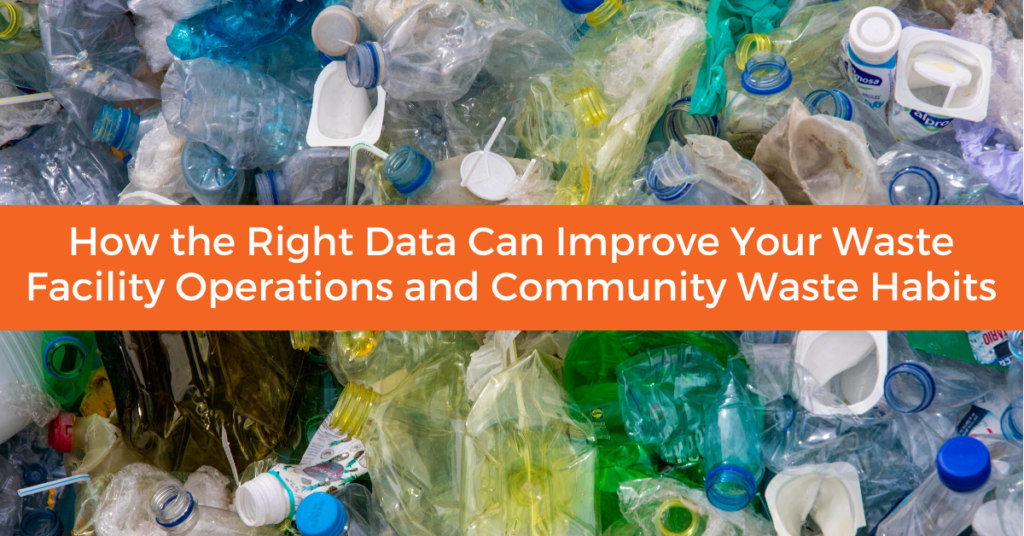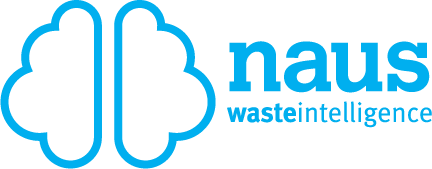
Most modern industries depend on quality data to operate efficiently. Quality data is the bedrock for good decision making. Operating without it can leave organisations vulnerable to making poor and expensive decisions or lose their competitive edge.
Unfortunately, the waste industry in Australia is severely underutilising data, partly due to lack of quality data, failure in compliance processes, a lack of proper implementation of reporting and analytics strategies, or a combination of these.
Mandalay has the software solutions and processes to help you accurately collect, store and analyse vital data that will positively impact your waste facility’s and council’s future success.
Transform your data into waste intelligence with Mandalay.
The Importance of Having the Right Data
If you don’t know where your waste comes from and all the different touchpoints that interact with different people, collections and systems, how do you know if you’re dealing with your waste in the best possible way? There could be a whole series of other opportunities out there that you aren’t even aware of. Data helps you to understand those touchpoints and identify better opportunities along the way.
Measuring the Right Data
Perhaps your waste facility is already collecting data. But is it the right data?
Consider what success means for your waste facility or council. Measuring what’s in the bin or the quantity of waste going across the weighbridge is not necessarily the right data to look at when trying to define success for the future.
You need to know more than the type and quantity of waste coming through your site.
Other data scenarios you should consider include:
- Customer behaviour – Frequency of trips, waste class, diversion from landfill.
- Customer classification – Commercial or residential.
- Financial – Who are my top commercial customers?
- Waste source – What is the source of waste? Is it being generated within your local area?
- Facility use – Are customers using their nearest facility? Are they using the facility (depositing waste) or just visiting? (e.g. contractor or tip shop use)
- Waste volumes – What events lead to an increase or decrease in the quantity of waste?
- Regulatory – Are you collecting the right data to meet regulatory requirements?
- Traffic volumes – When are the busiest times? Are all vehicle movements being recorded?
- Auditing – What are the most common operator mistakes?
- Fraud – Correct customer type identification, operator behaviour.
The data you collect belongs to your organisation and it is an asset. Make sure you are making the most of it.
How Can Data Be Used to Improve Your Operations?
Having the right data is a must to help you run your operation more profitably and deliver the waste services of the future to your community.
The right data set combined with precise and accurate data is critical to making the right decisions about your collection services, infrastructure and helps you gain a true understanding of your waste operation performance overall. It’s also critical for managing compliance events (such as overloaded vehicles), regulatory requirements or Levy impacts.
Your waste facility can save money by classifying the data correctly. By accurately capturing data at the correct points, analysis would enable the user to determine the peak and off-peak facility operational events thereby allowing the facility manager to make better decisions like regulate facility hours and staff members based on the insights drawn from data. This is a perfect example of how refining and tweaking data is used as a basis to make decisions. Another example is with the introduction of waste levies, accurate data capture can directly translate to financial implications for the facility.
Do More with Your Data – Better Decision Making for Your Operations
While many facilities such as yours may already have initial data systems in place to conform to regulatory frameworks, there comes a point when you realise that there’s more you can do. You can run your facility more profitably, generate more revenue, improve customer service and so much more.
But don’t just use your data to comply with state regulations. Go beyond them. Discover ways to extend the life of the landfill or meet community expectations for increasing recycling rates. There are so many motivators to explore once you see data as an asset and begin to develop an appetite for data.
To do more with data you first need to build good quality data that can be used to support decisions and provide you with the intelligence you need to ask the right questions in the first place.
For this to work, you also need to build sound discipline in the management of your data. If you don’t have this, your data may not be good enough and you won’t get the outcomes you’re looking for. That’s why it’s so beneficial to get the external help you need to ensure your data needs are met.
How Can Data Be Used to Improve Waste Habits in Your Community?
When deciding what data to measure, you really need to think about what it is you’re trying to achieve. Too often, councils come up with solutions ahead of really understanding the problem.
Let’s look at the big picture problem that we’re all trying to solve. We need a world with less waste. So how do we go back to the core of the issue which is education and waste minimisation?
To achieve these things you need demographic, behavioural, waste input, and other community centric data to gain a full understanding of the problem before you work towards better education and developing the right solutions.
Data is an asset that help managers and councils better understand waste, thus enabling you to change behaviours and habits in the community and ultimately turn that waste into resources.
Understand your Community and Residents Better with the Right Data
Most councils only take the approach of looking at the community as a whole, but without an individual understanding of your customer, how can you target your education and resources to assist them in changing their behaviours if you don’t know who they are or how they behave?
Here at Mandalay, we can help build the right data to allow waste managers and councils direct their education resources to the demographics and people who need to be targeted.
It’s time for the waste industry to change the way it thinks about waste data. This data is your storyboard that can help you save on costs, improve services, and even help change resident waste behaviours.
Contact Mandalay today for more insights about waste data and to find out how we can help you obtain accurate, accessible, and valuable data that makes a real difference to your organisation.


